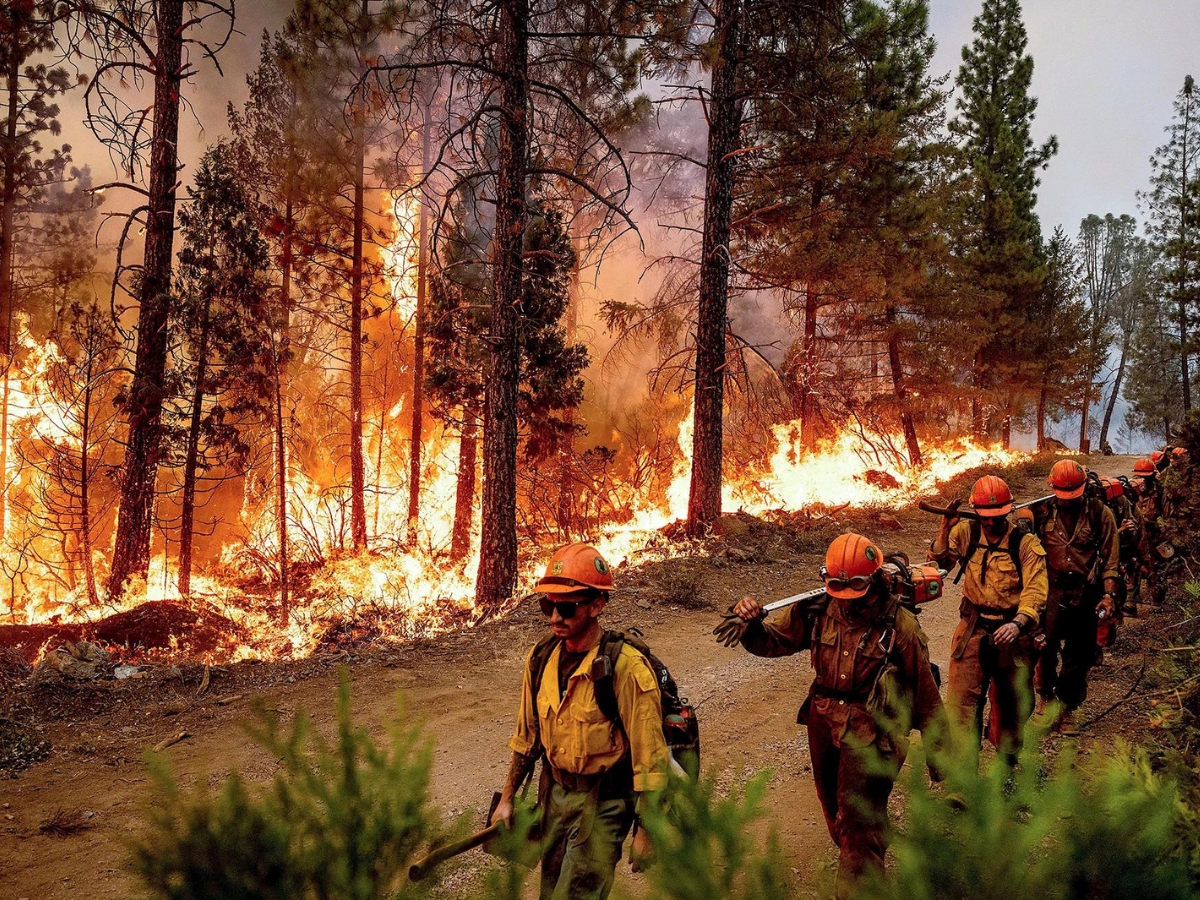With rising temperatures and drier conditions, wildfires are becoming more frequent worldwide. Though they’re a natural component of many ecosystems, climate change amplifies their occurrence. Human activity is the primary contributor to climate change, which warms the planet and dries out the atmosphere, increasing the likelihood of wildfires. In this article, we’ll explore the basics of how climate change is exacerbating wildfires.
What is Wildfire?
Wildfires are a type of natural disaster, often artificial, that can occur anywhere in the world. They are caused by a combination of factors, such as dry conditions, strong winds, and flammable materials, that can lead to rapid ignition and spread. Once a wildfire starts, it can be extremely difficult to contain and control, posing a serious threat to human life, wildlife, and infrastructure.
Thousands of people are forced to evacuate their homes every year due to the danger of wildfires. The damage caused by these disasters can also cost billions of dollars, as seen in the California wildfires of 2018. Wildfires are a destructive force of nature that should not be underestimated.
These disasters typically occur in areas where there is an abundance of dry vegetation that can serve as fuel for the fire. Some of the regions where wildfires are frequent include parts of the western United States, Australia, and Western South Africa.
Unfortunately, wildfire is at its worst this year due to extremely hot weather worldwide. Many European countries, such as Cyprus, France, Portugal, and the UK, are currently facing dangerous wildfires in 2022. These fires can cause widespread damage, destroy homes and businesses, and displace thousands of people.
It is important to follow safety guidelines, recognise risk factors in your area, and be prepared for evacuation if necessary. In the event of a wildfire, staying informed and cooperating with local authorities is essential to ensure the safety of yourself and your community.
What Causes Wildfires?
Wildfires can be caused by various factors, including natural phenomena such as lightning strikes, human activities, and weather conditions. Dry environments can exacerbate these causes, resulting in a small spark quickly growing into a massive, uncontrollable blaze. Thus, it is critical to exercise caution and implement fire safety measures in areas that are susceptible to wildfires.
Natural Causes of Wildfire
Wildfires are naturally caused by three elements: dryness, wind, and heat. A small spark can trigger a wildfire, given the right conditions. It’s crucial to remember that wildfires can spread rapidly and get out of control. Dead trees can accumulate in an area, and the heat from the sun can dry them out, leading to a buildup of firewood. This can cause the area to become more susceptible to catching fire from a lightning strike. During a wildfire, winds can exacerbate the flames and cause them to spread quickly. Understanding the natural causes of wildfires can help prevent them from occurring or minimise their impact. Proper fire safety measures, such as not leaving campfires unattended and ensuring that cigarette butts are properly disposed of, can also help reduce the risk of wildfires.
Man-Made Causes of Wildfire
A study suggests that approximately 85% of wildfires in the USA are due to human activity, which is believed to be a similar statistic globally. Careless human behaviour, including leaving campfires unattended, disposing of cigarettes, and using fireworks carelessly, is the primary cause of wildfires. Equipment malfunctions, such as those related to vehicles or power lines, can also start fires. Arson is another significant factor contributing to human-caused wildfires. Preventing wildfires is crucial, as they can cause widespread environmental damage and property destruction and endanger human life. Fire safety awareness, education, and responsible behaviour are essential in mitigating the number of wildfires caused by human activity. Effective prevention strategies include enforcement and education campaigns.
Effects of Wildfire
Wildfires are a natural and essential part of forest ecosystems, crucial in clearing undergrowth, creating openings in the forest canopy, and regulating tree growth. They also contribute to the nutrient cycle and enhance habitat diversity. However, while wildfires have benefits, they can also negatively impact the environment, both in the short-term and long term.

In the short term, wildfires can be devastating, causing injuries or fatalities to people and animals, damaging homes and other structures, and leading to air pollution and water contamination. Smoke inhalation can cause respiratory problems, ranging from minor irritation to serious conditions like bronchitis and pneumonia. Wildfires can also trigger mudslides and flash floods that can be life-threatening. Therefore, managing and preventing wildfires is critical to minimising their negative effects on the environment and people.
In the long term, wildfires can affect forest ecosystems and their services, such as biodiversity, water conservation, and carbon sequestration. Frequent and intense wildfires can lead to the loss of valuable habitats and adversely affect species that depend on those habitats. Additionally, large-scale fires can reduce the capacity of forests to store carbon, contributing to the effects of climate change. Thus, forest management strategies should balance the benefits and risks of wildfires to ensure sustainable ecosystems and their services for future generations.
